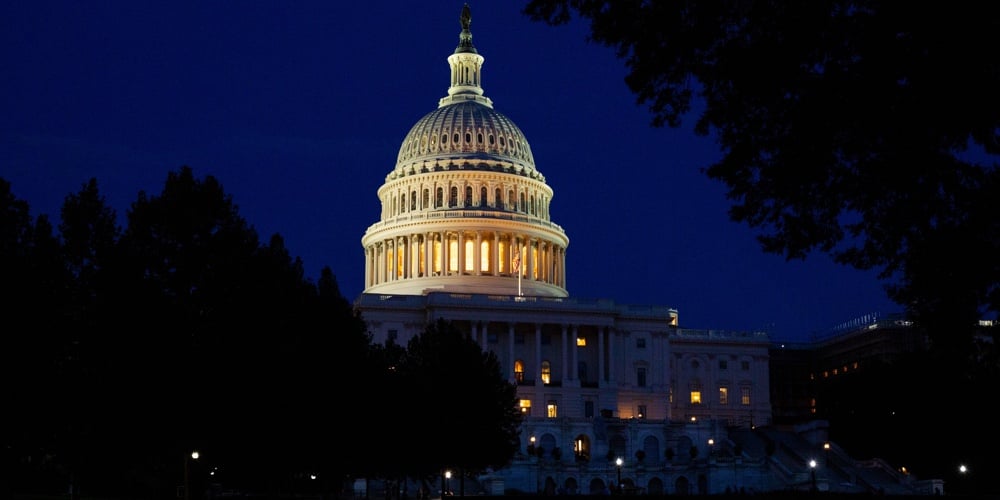Reject the Credit Card Competition Act – protect our military’s readiness!

The “Credit Card Competition Act,” S. 1838, as introduced by Senators Dick Durbin and Roger Marshall, represents another financial hazard masked by seemingly good intentions of the retail lobby. Unfortunately, the proposed legislation does nothing to reduce additional costs for consumers and harms working-class Americans. All it really does is secure another round of windfall profits for big box retailers and e-commerce giants. This is unfair and should alarm everyone reading this article.
Big-box retailers support this bill because it requires banks and credit unions to route credit card transactions to the cheapest network without passing savings onto the consumer—all to maximize retailer profits. These groups are using the same false promises from prior attempts which led to the 2010 Durbin Amendment in various digital ads and emails to members of Congress. If this bill passes, there will be only one way to use your credit card—and it is not beneficial or safe.
We know big box retailers and e-commerce giants are making empty promises. According to a 2014 survey conducted by the Federal Reserve Bank of Richmond, there is a clear disconnect between what was promised during the 2010 Durbin Amendment and what actually occurred. In fact, the survey highlights a sizable portion of merchants who raised their prices or imposed restrictions on debit card use to avoid paying debit interchange fees.
Yet, few merchants were found to have reduced prices or removed debit restrictions, even as debit costs decreased. Frankly, they were keeping the money for themselves. Additionally, no one is monitoring compliance with the original 2010 Durbin Amendment with respect to debit cards and as a result, consumers continue to lose. There is nothing to suggest that things will be any different for credit cards.
Worse, these groups have attempted to exploit military members, while targeting Medal of Honor recipients, Purple Heart recipients, former POWs, and Disabled Veterans among others in their flawed study proposal. Not only would savings be kept by the merchant, but this legislation would also increase the cost of basic banking services for consumers – hitting lower-income families the hardest. Our service members and veterans deserve better as they use credit cards for traveling home for the holidays, to buy their uniforms, and to establish a responsible credit history.
Not to mention, there is a security concern. If the Federal Government imposes price controls on interchange, credit card transactions will likely become less secure, using less reliable networks that do not provide a suite of rewards and protections for consumers. Instead of choosing the best option, retailers will likely route transactions over the cheapest networks – many of which have underinvested in their platforms with little concern for security innovations or consumer benefits.
In terms of military personnel’s financial readiness, nobody wants to deal with cash in a deployed environment. In terms of personal security compromises, dealing with a security breach while in combat is a recipe for disaster. These all negatively impact the operational campaign and accomplishing already difficult and hazardous missions.
While the bill contains a cynical carve-out for smaller institutions, we all know that regulating the largest institutions and payment networks forces changes to the whole credit card payments ecosystem. As a result, finding the resources to pay for technology updates and re-issuance of cards becomes much more difficult for smaller institutions all while driving increases in fees everywhere else. This is exactly what happened with debit cards in 2010.
Finally, allowing merchants and retailers to select payment networks eliminates another stream of non-interest income used to keep basic financial services affordable for credit union members. Thus, free checking accounts, low fees, and interest rates, and financial wellness programs become less sustainable. At a time of rising inflation, this is not the time to raise the cost of financial services for our hardworking members.
Very few Americans want to read that Congress voted to increase merchant profits by exploiting Medal of Honor recipients, Purple Heart recipients, former POWs, and Disabled Veterans. Our nation’s credit unions understand that now more than ever we need to put our nation’s military and veterans first and reject the hollow call for new laws that would make basic financial services even more expensive for them as well as working-class Americans.
We urge you to stand with us as we reject this proposal and challenge the powerful interests pushing this harmful legislation.





